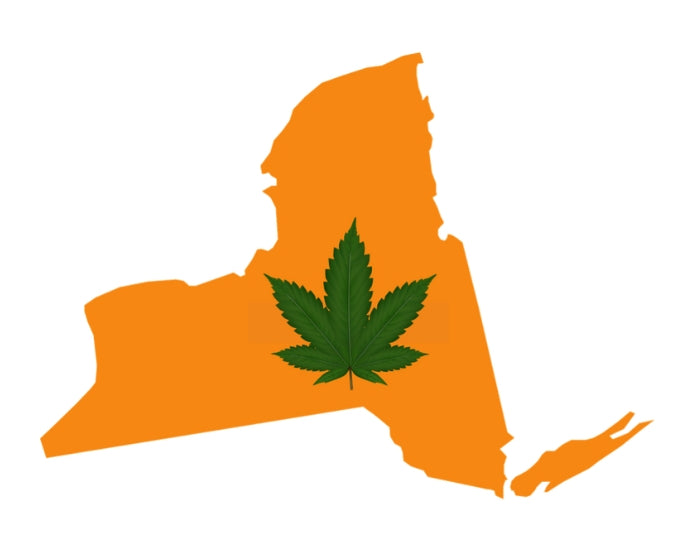Economists and lawmakers presented their financial projections for a potential legal adult-use marijuana industry in the state last week.

After many years of coming close to enacting cannabis reform, 2024 may be the year when Florida voters finally get to decide if they want to legalize recreational marijuana in the Sunshine State.
Last August, the "Smart & Safe Florida" political committee began its campaign to push for adult-use cannabis legalization in the state through its initiative, the "Adult Personal Use of Marijuana" proposal. According to state officials, the campaign has collected enough signatures to qualify for next year's ballot placement. However, late last month ​​, Florida's Attorney General, Ashley Moody (R), submitted a brief asking the Supreme Court to invalidate the measure from the 2024 ballot, claiming that it misleads voters as written.
While the court considers that request, state officials met at the Financial Impact Estimating Conference (FIEC) last week to consider the economic impact of the potential marijuana ballot initiative. According to multiple national and local media outlets, during the last meeting of four held to discuss the measure, economists representing the legislature, state agencies and Governor Ron Desantis' office finalized a financial impact statement to be provided to voters if the initiative makes the 2024 ballot.
In that statement, officials estimate that if the cannabis legalization measure passed, it would generate between $195.6 million and $431.3 million in new sales tax revenue annually. Likewise, if lawmakers imposed an additional excise tax on marijuana transactions similar to those in other states with a legal recreational market, those financial numbers could increase considerably.
Members of the FIEC include:
- The coordinator of the Office of Economic and Demographic Research.
- One member from the Executive Office of the Governor.
- One person each from the Senate and House of Representatives staff.
In developing a per capita metric for estimated revenue, the group analyzed eight other states with legalized adult-use cannabis industries and then applied it to Florida, assuming sales could begin by the 2025-2026 Fiscal Year.
The conference did note that more than half of the states it studied imposed a separate excise tax on marijuana in addition to the usual sales tax. However, even if the initiative passed, Florida requires legislative action to enact an excise tax, so officials did not account for one in the final financial impact statement.
Other sections of the statement examined the impact of legalization on criminal justice-related spending, public health, and regulatory costs associated with implementing a legal market. The overall takeaway from analysts is that a legalized adult-use market while providing considerable tax revenue to the state, would have a somewhat unclear impact on the criminal justice system and public health.
"Given the mixed findings in the academic and technical literature and the likelihood that savings and increased costs will both result over time, the net impact is indeterminate," it said.
"Given the mixed findings in the academic and technical literature and the likelihood that savings and increased costs will both result over time, the net impact is indeterminate."
- Financial Impact Statement from the Florida FIEC
Industry activists and stakeholders in Florida have already been down this road a few times. Two proposed measures submitted by Make It Legal Florida and Sensible Florida in 2021 failed to meet the criteria for the court and failed. Furthermore, if the proposal does make it to the ballot box, it will require approval from 60% of voters to become an amendment to the Constitution.
That is a crucial number considering that a poll taken in 2021 found that 59% of Florida voters support legalizing recreational marijuana for adults, leaving almost no margin for error for those advocating for the new measure.
Another issue plaguing the supposed "grassroots effort" of the Smart and Safe Florida PAC is that it is almost entirely funded by the medical marijuana behemoth, Trulieve, which has contributed over $38 million to the campaign.
If the measure makes it to the ballot in 2024 and receives approval by at least 60% of voters, the most significant financial beneficiaries of the new law would be companies like Trulieve, and that is understandably and justifiably problematic for legalization advocates and stakeholders wary of the involvement of sizeable multi-state cannabis operators injecting themselves in the political process of enacting legalization reform at the state level.
The Florida case is unique because the ballot initiative would add an amendment to the state constitution legalizing marijuana. So, if there are problems down the road with the new law, changing or repealing it would be much more complicated than if the legislature had passed the law.
Unfortunately, regarding cannabis reform, things are rarely straightforward, especially in states as powerful and polarized as Florida. Moreover, with the state's governor making his bid for the White House and a former president battling legal charges in the state while mounting his own campaign for a second term, the issue of legalizing marijuana can barely get any airtime for voter consideration.
Plants and politics make strange bedfellows indeed. Let's hope the voters get the final say when all the dust and bluster settles. That's how the system is supposed to work. Right?






































